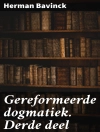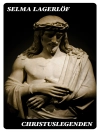In ‘The Everlasting Man, ‘ G. K. Chesterton presents a compelling narrative that weaves together philosophy, theology, and history to explore the essence of humanity and the nature of divinity. Written in a prose style that is both engaging and witty, Chesterton contrasts the contributions of various civilizations with the unique emergence of Christianity. His intricate argumentation challenges prevailing perceptions by advocating for the significance of the historical Christ as t...
In ‘The Everlasting Man, ‘ G. K. Chesterton presents a compelling narrative that weaves together philosophy, theology, and history to explore the essence of humanity and the nature of divinity. Written in a prose style that is both engaging and witty, Chesterton contrasts the contributions of various civilizations with the unique emergence of Christianity. His intricate argumentation challenges prevailing perceptions by advocating for the significance of the historical Christ as the culmination of humanity’s spiritual quest, all set against the backdrop of Enlightenment skepticism and modern materialism. Through vivid imagery and provocative insights, Chesterton crafts a portrait of man as a creature both whimsical and divine, urging readers to reconsider their understanding of history’s trajectory. G. K. Chesterton, a prolific writer and thinker, was deeply fascinated by the intersections of faith and reason, which shaped his worldview and informed his writings. His experiences as a journalist and a convert to Christianity enriched his perspective, allowing him to approach theological questions with both critical depth and imaginative breadth. This exploration of faith resonates with readers who find themselves immersed in an increasingly rationalistic society, as Chesterton sought to illuminate the paradoxes and mysteries of the human experience. Recommended for those interested in philosophy, theology, or the history of ideas, ‘The Everlasting Man’ is a profound contemplation that prompts readers to question their own beliefs and understandings. Chesterton’Äôs masterful synthesis of thought and playful rhetoric makes this work not just an academic endeavor but also an engaging read for anyone contemplating the meaning of humanity in the modern age.












